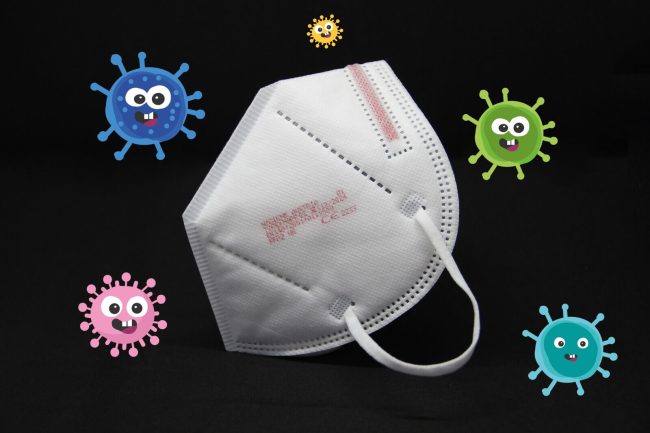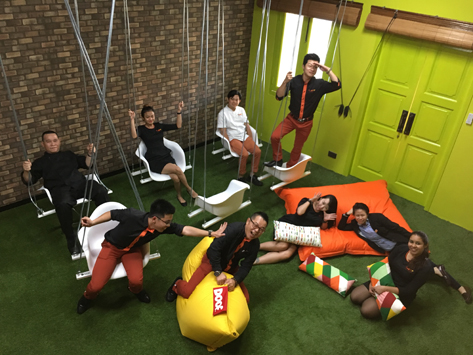
Your presentation at ITB Asia touched on the estate where you grew up and how your play and interaction with other kids laid seeds for your future career. Do those days still shape your outlook?
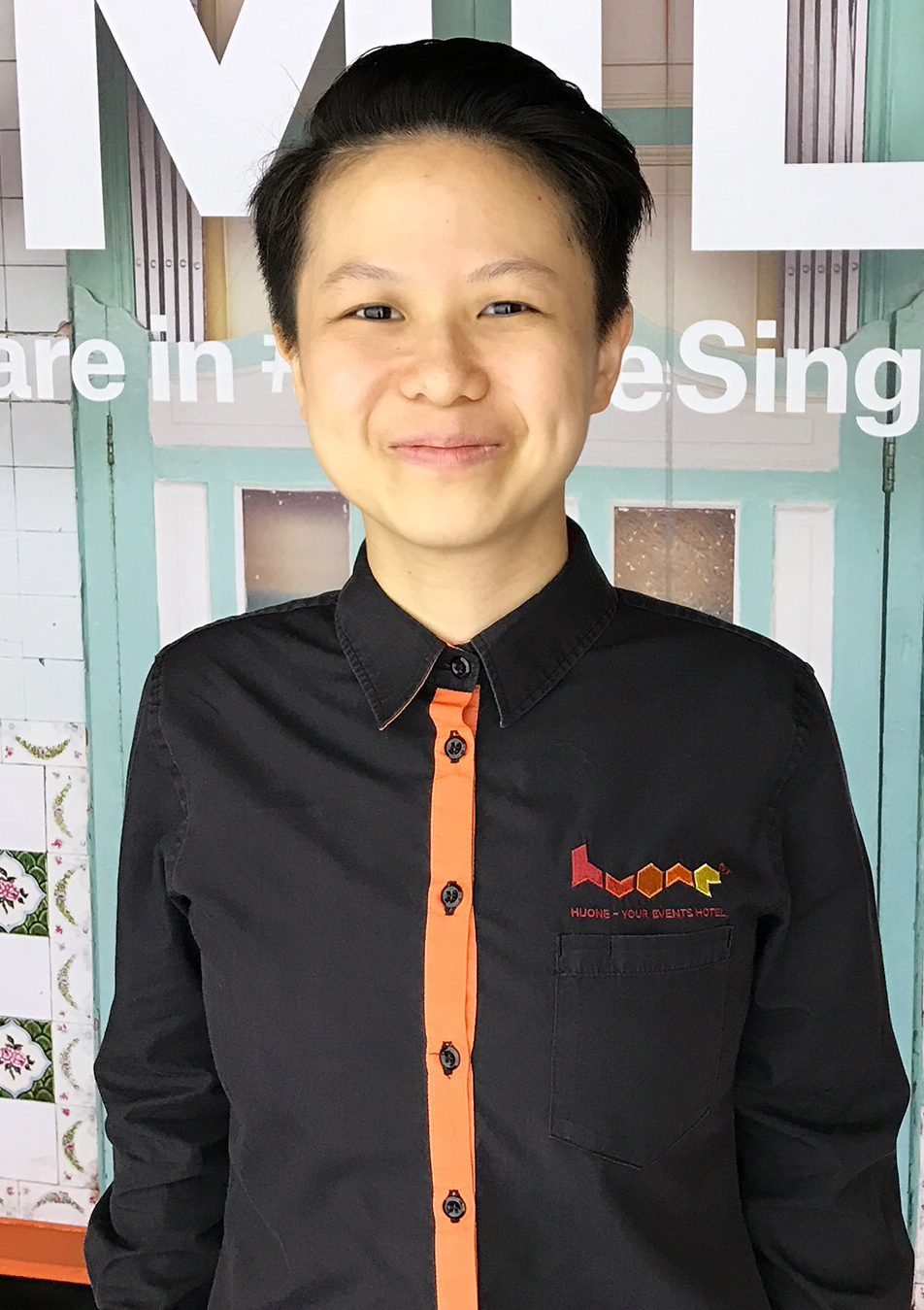 I grew up with five siblings and my father was the sole breadwinner. As a child, I resented being poor and always found ways to “make ends meet” to satisfy the playful side of me.
I grew up with five siblings and my father was the sole breadwinner. As a child, I resented being poor and always found ways to “make ends meet” to satisfy the playful side of me.
Catching fish in the canals and watercourses with neighbours became a weekly affair.
We often had “meetings” around these places to “strategise” how we can maximise our catch.
This interaction helped me open up and let go of my introverted self, so I always looked forward to “class” at the canal, playground or river. This played a big part in training me to be street smart and, even today, I believe that people (not just kids) learn best by play and interaction.
How did this evolve into a career in events?
During my internship with South West Community Development Council, I started to be part of the event planning process, but was so caught up with the WOW (but superficial) factor of events.
I thought it was cool to build events that garnered media attention because of how pretty they looked. Working for a government statutory board, however meant having to ethically watch every cent we spent, so I was thrown back into the reality of limited budgets.
I started my first job in banking operations and, when I got bored of the mundane work, I moved on to Frontier Strategy Group, a management consultancy.
Part of my job involved organising roundtables for C-suite executives from leading multinationals and my interest in events was reignited.
Hosting C-suite guests isn’t as daunting as it sounds but engaging them is. They have been to so many events and creating an environment to encourage maximum participation wasn’t easy. It involved inviting the right speakers, having a strategic seating plan, etc.
After 18 months, I left the corporate world and founded my own boutique event agency, Linear Dots Production.
Entrepreneurialism is given special consideration in Singapore. Has this helped or hindered you in any way?
I have always been thankful for being able to start my entrepreneurial journey in Singapore. From having one of the lowest corporate tax rates, and a long list of grants and schemes, to a corruption-free government, I can speak for many start-ups that we have benefited from the robust business infrastructure in Singapore.
Is it easy to get such government support?
Sad to say, many people also took advantage by incorporating companies to make illegitimate claims for grants, causing authorities to tighten their control and impose stricter rules for claims. While this helps to discourage dishonesty, many legitimate businesses suffer when they cannot qualify for grants, even though there is huge potential for their businesses.
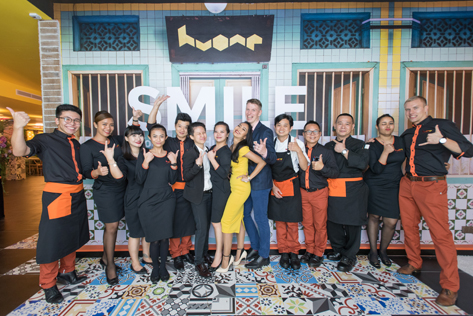
In the case of HUONE, we could not qualify for a bank loan merely because we were in operation for less than two years. It did not matter that we were profitable within four months, nor did it matter that we invested more than S$2 million into our product. It also didn’t matter that we had such a strong backer in Finland – all because we were less than two years old.
I do not blame the authorities, but I blame fellow citizens for abusing the system to a point where it was not sustainable to evaluate each application in a more in-depth manner. Anyhow, I am glad that we pulled through on our own and, looking back, glad that we did not take funds from investors who undervalued us before we opened.
How did the partnership with HUONE come about?
Evon Söderlund, one of HUONE’s founders, won the PwC Most Valuable Entrepreneur Award in 2014. As part of her award, PwC Finland encouraged her to make the brand international, so she came to Singapore to survey the market.
 Evon (left) was put in touch with PwC Singapore who were unfortunately too busy to host her, and they asked this one events person they knew (lucky me!) for a favour to host their Finnish guest for coffee. A supposedly one-hour coffee session turned into 2.5 hours of conversation! Evon said she would like to partner me to bring HUONE to Singapore. A month later, I flew to Finland to meet the rest of the owners and board; after a year-and-a-half of planning, we opened our doors.
Evon (left) was put in touch with PwC Singapore who were unfortunately too busy to host her, and they asked this one events person they knew (lucky me!) for a favour to host their Finnish guest for coffee. A supposedly one-hour coffee session turned into 2.5 hours of conversation! Evon said she would like to partner me to bring HUONE to Singapore. A month later, I flew to Finland to meet the rest of the owners and board; after a year-and-a-half of planning, we opened our doors.
In many ways, Huone’s format makes it a disruptor. What sort of reaction have you heard – or sensed – from traditional suppliers of meeting spaces?
The most common reaction is requests to view our space. There were a few cases of these suppliers calling on the pretext of wanting to refer a client and bringing eight to ten colleagues (with no client) for a site visit. Coincidentally, none of them happened to be carrying business cards.
I even received a call from one of the convention centres asking if they can “inspect HUONE to see what technology and design”.
We are transparent about our offering and prices, and room photographs are all available on our website.
Heritage event spaces in Singapore
Hotels are the biggest suppliers of meeting spaces and the truth is, hotels are our best friends because their primary product is bedrooms. When HUONE hosts international guests, guess who gets their bedroom business?
It’s all about collaboration and not competition. Competition is usually lose-lose while collaboration is win-win. We hope that through our presence in top MICE cities, traditional suppliers of meeting space will be encouraged to rethink their offering to serve the ever-changing market.
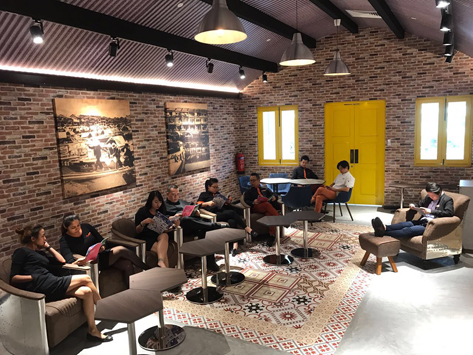
Where does Huone Singapore go from here, and are there other plans for your events company?
Huone Singapore plans to open more units in Singapore then focus on our regional expansion plan. Our aim is to open another 10 units globally over the next two years.
As for Linear Dots Production, our hard work for the last few years is paying off. People are starting to realise that we offer a high quality of work at a reasonable rate.
There are more than 500 event agencies in Singapore and less than 20 per cent are agencies whose services I would pay for. I always tell my clients that if you just need someone to liaise between suppliers, you are better off hiring an intern. It will cost you a lot less and you will be surprised how resourceful these interns are.
We are in the expansion phase and are actively looking for talent to be part of our team. We aim to double in size by 2019.
Joewin Tan is the founder of Linear Dots Production and CEO of HUONE Singapore. She was interviewed by Martin Donovan


